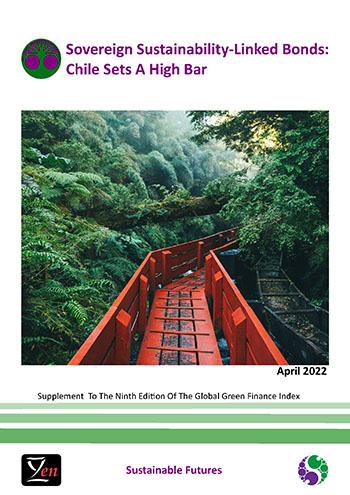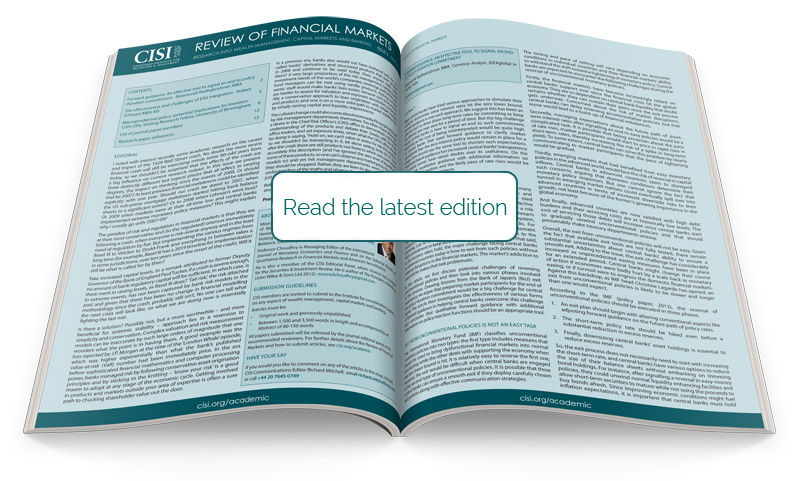Emissions – the urgent missing E in ESG
Introduction by George Littlejohn MCSI
In most trilogies – think faith, hope and charity (love) in the Christian tradition – one is greater than the other two. Alas, the main thrust of that great mantra of finance today – environmental, social and governance, or ESG – gets lost in much of the noisy and wide-ranging but often confusing and misunderstood debate around this bandwagon. That omission from much of the discussion and analysis threatens to undermine its chief purpose, which is to tame the climate challenge, and bring global temperatures under control. The omission is emissions – the biggest threat of all.
When Gary Gensler, chair of the US Securities and Exchange Commission (SEC), launched his climate disclosure proposals in March 2022, he gave a fractious Washington establishment a curt history lesson. “Our core bargain from the 1930s is that investors get to decide which risks to take,” he said, “as long as public companies provide full and fair disclosure and are truthful in those disclosures. … Today, investors representing literally tens of trillions of dollars support climate-related disclosures because they recognise that climate risks can pose significant financial risks to companies, and investors need reliable information about climate risks to make informed investment decisions.”
The proposals launched into a sea of controversy, even though, some would argue, they missed the main target of disclosure and verification. They cover Scope 1 emissions, the ‘greenhouse gases’ that a company makes directly, say, running its vehicles, ships and boilers, and also Scope 2 – indirect emissions from, for instance, the electricity or energy it buys for heating and cooling buildings, or energy which is being produced on its behalf. But Scope 3 is nearly always the big one, representing almost 90% of all major company emissions, according to recent MSCI data. In this category go all the emissions associated, not with the company itself, but that the organisation is indirectly responsible for, up and down its value chain. That covers buying products from its suppliers, and from its products when customers use them. Under the SEC proposal, these would need to be disclosed only if they were deemed material or part of companies’ climate targets. Scope 3 disclosures would not be subject to third-party verification and would be protected from legal liabilities. That is a big hole in the disclosure ozone layer, and in plans to measure corporate and investor responses to this greatest of current challenges.
Corporate governance and boards need to adapt quicklyAlexander Van de Putte, professor of strategic foresight at IE Business School, on the second stage of his new model 'Corporate Governance 4.0'.
Footnotes
The existence of an active climate mindset model in directors’ own accounts of their thoughts and actions
Clare Nickson Havens continues her analysis of what makes for good and effective boards in the face of the growing climate threat.
Green finance challenges in developing countriesIn the first of two articles from China, Mr Juzhong Zhuang surveys the role of green finance in development.
 Chile sets a high bar for sovereign sustainability-linked bonds
Chile sets a high bar for sovereign sustainability-linked bondsIn our recent green finance roundup with colleagues in China, Professor Michael Mainelli, Chartered FCSI(Hon), brought sustainability-linked bonds to the fore.
The latest from our poet-in-residence, Nigel Pantling, Chartered FCSINigel’s second pamphlet Hip Hind Hook reflects his experience as an officer in the Royal Artillery in the British Army of the Rhine during the Cold War and catches the strange unsettling tension of that time, and the idiosyncrasies of regimental life at the eastern border of democracy.
Read the latest edition of Review of Financial Markets

Download the Review of Financial Markets
 August 2022 edition
August 2022 edition
 February 2022 edition
February 2022 edition
 October 2021 edition
October 2021 edition
 June 2021 edition
June 2021 edition
 February 2021 edition
February 2021 edition
 October 2020 edition
October 2020 edition
 June 2020 edition
June 2020 edition
 February 2020 edition
February 2020 edition
 October 2019 edition
October 2019 edition
 July 2019 edition
July 2019 edition
 Q1 2019 edition
Q1 2019 edition
 Q3 2018 edition
Q3 2018 edition
 Q2 2018 edition
Q2 2018 edition
 Q1 2018 edition
Q1 2018 edition
 Q4 2017 edition
Q4 2017 edition
 Q3 2017 edition
Q3 2017 edition
 Q2 2017 edition
Q2 2017 edition
 January 2017 edition
January 2017 edition
 September 2016 edition
September 2016 edition
 July 2016 edition
July 2016 edition
 March 2016 edition
March 2016 edition
 December 2015 edition
December 2015 edition
 September 2015 edition
September 2015 edition
 June 2015 edition
June 2015 edition
 March 2015 edition
March 2015 edition
 December 2014 edition
December 2014 edition
 September 2014 edition
September 2014 edition
 June 2014 edition
June 2014 edition
 March 2014 edition
March 2014 edition